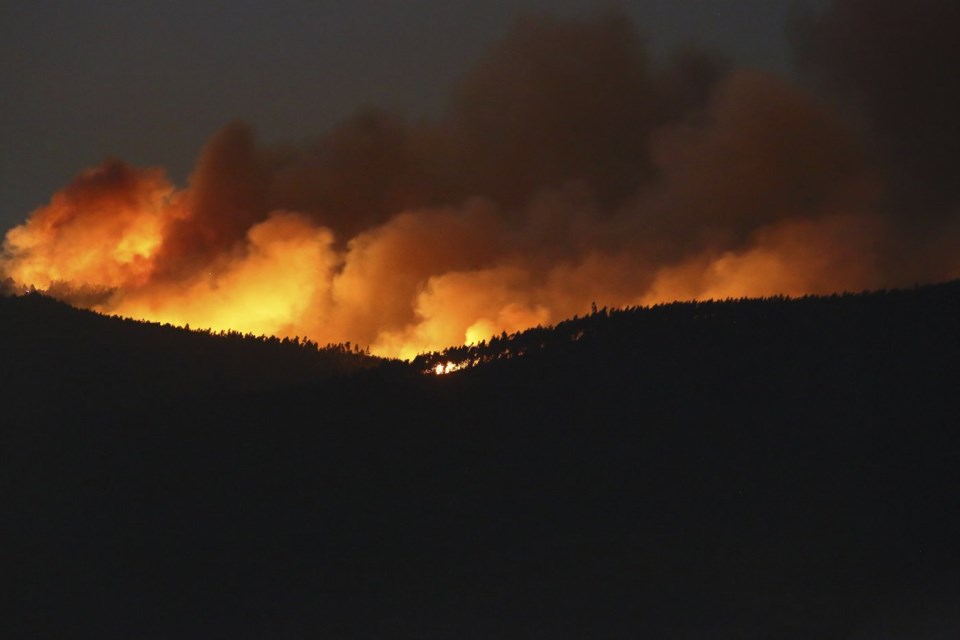LISBON, Portugal (AP) — More than 100 wildfires stretched thousands of firefighters to the limit in northern on Wednesday, with seven deaths since the spread out of control over the weekend.
Portuguese Prime Minister LuĂs Montenegro declared a state of calamity for the hardest-hit areas late Tuesday, invoking powers to mobilize more firefighters and civil servants. He also called on police investigators to redouble their efforts to find those who started the fires and pledged help for those who have lost their homes or have been evacuated.
“We are well aware that these difficult hours are not over yet,” Montenegro told the nation in a televised address. “We have to continue to give everything we have and ask for help from our partners and friends so that we can reinforce the protection of our people and property.”
The European Copernicus satellite service said that over 15,000 hectares (37,000 acres) were scorched and a combined 13 kilometers (8 miles) of fire fronts were detected as of Tuesday night. It added that an area home to 210,000 people was exposed to the fire risk.
The hot, dry conditions behind the outbreaks in Portugal coincided with . The European Union said Wednesday that the juxtaposed extreme weather phenomena are ”
Spain’s military sent 240 soldiers and vehicles from its emergency response battalions specialized in combating fires to its neighbor.
Four water-dumping planes from France, two from Spain and two from Italy were deployed after answering an appeal to help their fellow EU member. Morocco likewise responded to a request by Portugal with two water-dumping planes that arrived Wednesday.
“The thick smoke produced by most of these fires is making it very difficult for air units to operate," said Civil Protection official André Fernandes. “We are still at high risk for forest fires over the next 48 hours.”
Thick grey smoke and the smell of burnt wood reached some 85 kilometers (50 miles) across the border into northwest Spain.
Montenegro made a special call for security forces to pursue both arsonists and any individuals who started a fire out of negligence. Portuguese national police said they arrested seven men suspected of starting wildfires in recent days.
Authorities have prohibited the use of heavy farming equipment to reduce the risk of inadvertently starting a blaze.
Among the hardest-hit areas is the district of Aveiro, south of the northern city of Porto, but several major blazes were also raging out of control in other wooded areas.
Authorities have yet to release figures for property damage or the number of evacuees, but Portuguese state broadcaster RTP has shown charred houses in rural villages and local residents trying to battle flames with buckets of water, hoses, and even large tree branches. Other televised images showed visibility reduced to a few meters (yards) as orange smoke enveloped the terrain.
Three firefighters died Tuesday in their vehicle, while another succumbed to what authorities called a “sudden illness” while on duty over the weekend. Three civilians have also perished, according to civil protection authorities. Health services attended to 10 seriously wounded people and another 49 people with minor injuries, Fernandes said.
Portugal was devasted by that killed over 120 people.
Experts link the fires to both and the abandonment of traditional farming and forestry professions that helped keep rural areas clear of underbrush that is now fuel for fires.
___
Joseph Wilson wrote from Barcelona, Spain. Teresa Medrano contributed from Pontevedra, Spain.
Helena Alves And Joseph Wilson, The Associated Press



